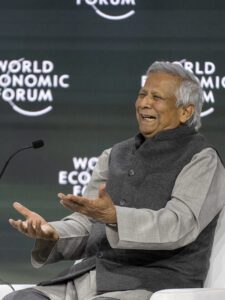Zack Polanski has been elected leader of the Green Party, after a landslide win in the party’s leadership contest.
The London Assembly member secured 84.6 percent of the vote, defeating the joint ticket of Adrian Ramsay and Ellie Chowns, with turnout among members being 38 percent.
The result makes Polanski the Green Party’s first sole leader, following a rule change earlier this year that ended the long-standing requirement for co-leadership.
He replaces Ramsay and Carla Denyer, who stood down earlier this year after leading the party through the 2024 general election.
Ramsay and Chowns congratulated Polanski after the result, saying they would work with him to build “a fairer, greener and more liveable future.”
Shifting the party’s direction
Polanski used his victory speech to send a direct message to Labour, declaring: “We’re here to replace you.”
He criticised Keir Starmer’s party for taking a centrist line and argued that Labour is failing to confront the scale of inequality and the climate emergency.
Describing himself as an “eco-populist,” Polanski has promised a more combative style of left-wing politics. He wants the Greens to compete directly with both Labour, taking in left-wing voters opposed to Starmer’s centrist stance and the rise of Blue Labour, and the demand for change seen with Reform UK’s rise, speaking to voters who feel left out and disillusioned with mainstream politics.
His platform calls for wealth redistribution, public ownership of key utilities such as water and steel, stronger rights for migrants and urgent climate action. He has also backed policies such as universal basic income and higher taxes on the wealthiest households.
Polanski has set an ambitious goal of winning 30 MPs at the next general election. The party currently has four MPs, elected in 2024, but finished second in more than 40 constituencies.
On potential deals with other parties, he ruled out cooperation with Labour in a hung parliament unless there was, in his words, “a brain transplant.” But he did not entirely dismiss alliances with figures on the broader left, including supporters of Jeremy Corbyn and Zarah Sultana’s new “Your Party”.
Party membership has recently climbed to a record 68,500, according to Green Party chief executive Harriet Lamb. She said the surge showed people were “hungry for genuine change.”
Who is Zack Polanski?
Polanski has been the party’s deputy-leader since 2022, and joined the Greens in 2017 following a short stint with the Liberal Democrats.
Born David Paulden in Salford, he later adopted the name Zack Polanski, to honour his Polish-Jewish roots and take on a new first name inspired by one of his favourite novels.
He attended Aberystwyth University and later a drama school in Georgia in the United States, moving to London upon graduation. Before entering politics, he worked in acting, youth and mental-health support and hypnotherapy.
Notably, The Sun published an article in 2013 with one of its reporters undergoing a complimentary hypnotherapy session with Polanski, presented as a way to boost breast size and self-confidence. He later argued the article did not reflect events accurately, but later apologised for his involvement.
Being openly gay, Jewish and vegan, he often links his personal identity to his politics, speaking up about facing antisemitism and homophobia, and how those experiences shaped his views on inequality and justice.
His breakthrough into elected politics came in May 2021, when he won a seat as a London wide member of the London Assembly.
From the beginning, Polanski positioned himself as an energetic and media-ready figure, often willing to challenge both City Hall and national government on climate policy.
He went on to chair the Assembly’s Environment Committee, while also serving on the Fire, Resilience and Emergency Planning Committee and the Economy Committee.
In December 2021, he won cross-party support for a motion urging London to back the Climate and Ecological Emergency Bill, gaining the endorsement of both Labour and Liberal Democrat members.
His rise within the party’s national leadership began in 2022, when he was elected deputy leader. In this role, Polanski emphasised what he called an “eco-populist” agenda, linking climate action with wealth redistribution and social reform.
He argued that tackling the cost-of-living crisis and the climate emergency should be treated as two sides of the same coin, making the case that a higher-wage economy was also a greener one.
During this period he became known for championing radical policies, including wealth taxes, the renationalisation of utilities, and a stronger role for government in addressing inequality.
After Carla Denyer announced that she would not seek re-election as co-leader, it opened the door to a new leadership race, with a broader debate looming over the party’s general direction.
Should the Greens continue with a steady, consensus‑driven approach led by experienced MPs, or move toward a more energetic, media-savvy “eco‑populism”?
Launching his campaign in early May, Polanski argued that the Greens needed to become a mass-membership, movement-style force, ready to directly challenge Reform UK and siphon off disillusioned Labour voters.
He leaned into a model of leadership where a single, charismatic figure could better command media attention than the party’s traditional co-leader format.
Polanski’s campaign attracted widespread media coverage, far more than the Greens had typically seen, but provoked concerns among longstanding members of a possible “hostile takeover” by newer, more activist‑leaning recruits.
Polanski’s landslide victory suggests that Green members are ready for a more direct, populist approach, broadening the party’s appeal beyond environmental issues – highlighting a general consensus of smaller parties capitalising on disillusioned voters.
Featured image via London Assembly.




